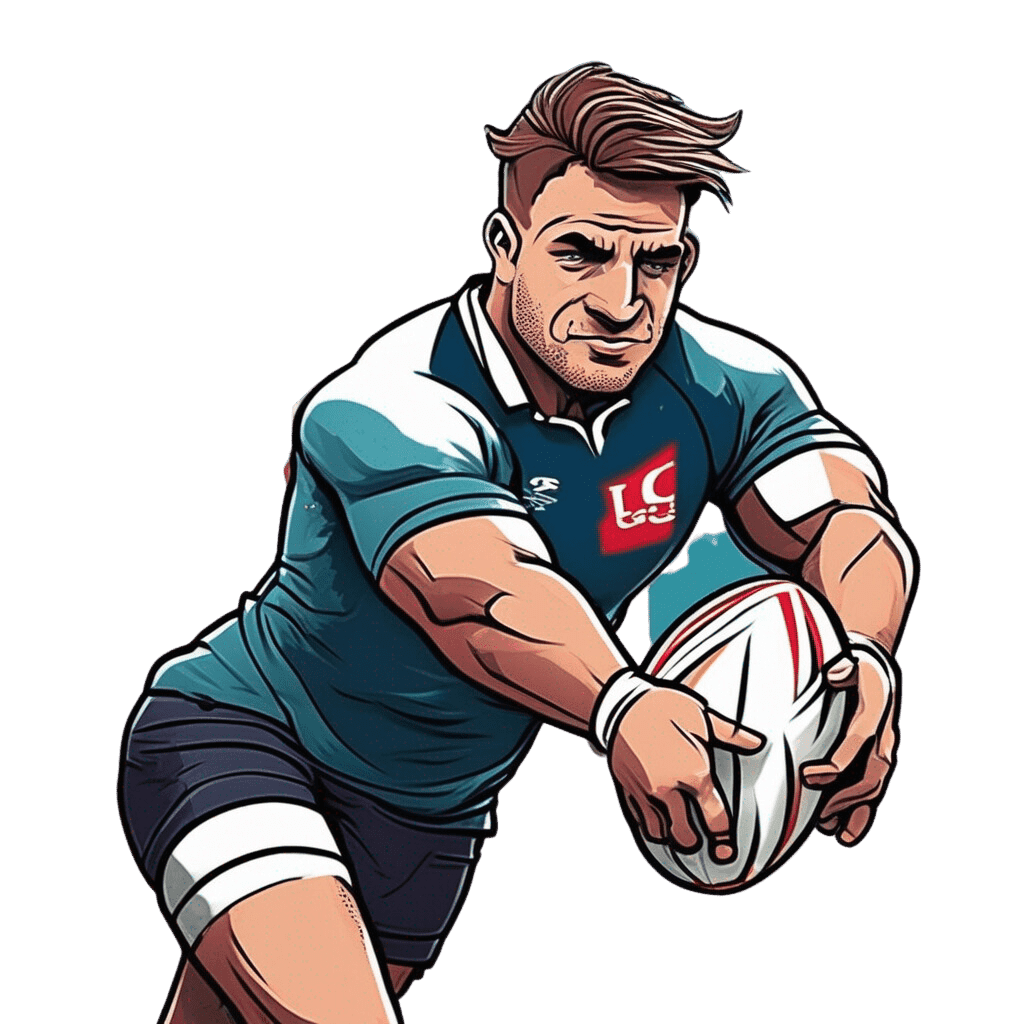At the age of 23, Morgan Parra was already champion of France with a club that had never won, winner of the VI Nations in a country that was no longer winning, finalist in the World Cup in the land of rugby, scorer for the French national team, best player in the championship ahead of Jonny Wilkinson and Vincent Clerc...
Precocity is perhaps what best defines the scrum-half's career. He made his debut at the age of four, played his first games at six and left his home town of Metz at just fourteen. And even back then, you'd have to be blind not to see that this kid had something extra. A combination of confidence, courage and talent. And while the Dijon youth academy launched him on the road to a life as a professional rugby player, Parra decided to join a club that was like him. A team with a family feel, a terroir and a strong identity: Bourgoin. The 'Berjallie', the holy land of rugby, where Pascal Papé, Julien Bonnaire, Sébastien Chabal, Florian Fritz, Olivier Milloud and so many others were trained.
Morgan Parra is different from all these players. He is a gifted player. At the age of 17, the club tried to obtain an exemption to allow him to play in the first division. The request was refused. Too bad: the CSBJ will wait. But not too long either! At the age of 18 and 3 days, he made his professional debut. And what followed was a long series of precociousness records: first-team regular at just over the age of 18, international at 19, goalscorer at 20, European Challenge finalist at 21. He has been compared to Jacques Fouroux for his natural authority, to Dimitri Yachvili for his footwork, to Elissalde for his control of the forwards. But Morgan Parra is unique, because he is all of these things at once. And while his attacking qualities have won him unanimous praise from the public and the press, within the group he impresses for something else. His partners at Bourgoin and in the Bleus describe him as a courageous young man. A soldier ready to go to the front despite his size. A warrior who gives up nothing. From "the shit", He becomes "the bramble". And from a young talent in the making, he changed his status to become the present of the XV de France. His explosion was complete when he left the Isère. He headed to ASM, the behemoth of the Top 14.
Before his arrival, Clermont was a monument. But above all, Clermont was the cursed club, the king without a crown, the best club in history to have never won a title. It's crazy, but before Morgan Parra arrived, the club had lost ten league finals. However, Parra was only 20 years old, and in his position was Pierre Mignoni, an international as well as a formidable leader. So when Parra wasn't playing after 4 months, he asked his coach Vern Cotter to leave. Fortunately, the coach refused. Probably because he saw in him the missing piece in the yellow and blue jigsaw.
Little by little, the prodigy made his mark. It was as if the rugby fairies had all bent over his cradle, and he even led his cursed Clermont team to its first title. Things seem so simple, so natural with Morgan Parra. In fact, Parra himself would admit at the end of his career that at that very moment, aged 22, he was playing for the best club in France, he was a regular in the French team and he had just won the Grand Slam in the 2010 Six Nations... so in his mind, that was the starting point of the Clermont era, the Parra period, of French domination.
In fact, it would be 7 years before ASM and their scrum-half returned to the Stade de France. Seven long years and a second and final title, giving a clearer picture of Clermont-Ferrand's meteoric rise. He should have been reigning over hexagonal rugby, breaking all records with the French national team and racking up titles and honours. Instead, Morgan Parra settled for being the only Clermont player to have won the club's two Boucliers as a regular.
His career came to an end with a final challenge, a final adventure, in Paris. After 17 seasons at the highest level, two Brennus and 71 caps, the kid had become a wise man. But the absolute, total, all-consuming passion for rugby can still be seen in his eyes. So, at the end of this season, he will swap his boots for a whistle and become a coach the Stade Français.
